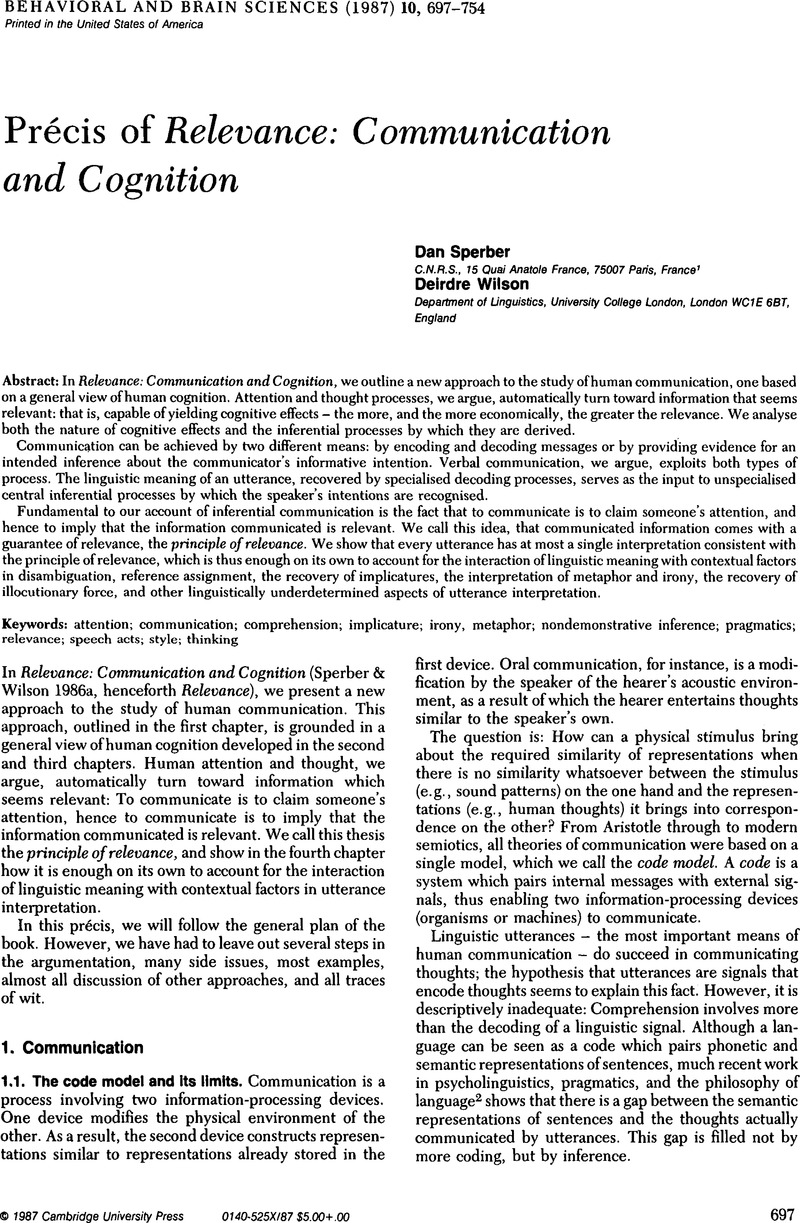Crossref Citations
This article has been cited by the following publications. This list is generated based on data provided by Crossref.
Gorayska, Barbara
and
Lindsay, Roger
1993.
The roots of relevance.
Journal of Pragmatics,
Vol. 19,
Issue. 4,
p.
301.
Yus Ramos, Francisco
1998.
A decade of relevance theory.
Journal of Pragmatics,
Vol. 30,
Issue. 3,
p.
305.
Yus Ramos, Francisco
1998.
Relevance theory and media discourse: A verbal-visual model of communication.
Poetics,
Vol. 25,
Issue. 5,
p.
293.
Mateo, José
2009.
Contrasting relevance in poetry translation.
Perspectives,
Vol. 17,
Issue. 1,
p.
1.
Bueno, Rodrigo
and
Saussure, Louis de
2022.
TEORIA DA RELEVÂNCIA E TEORIA DA LITERATURA: AS TEORIAS CIENTÍFICAS E AS TEORIAS CRÍTICAS DEVEM SER (RE)CONCILIADAS?.
Linguagem em (Dis)curso,
Vol. 22,
Issue. 3,
p.
365.





